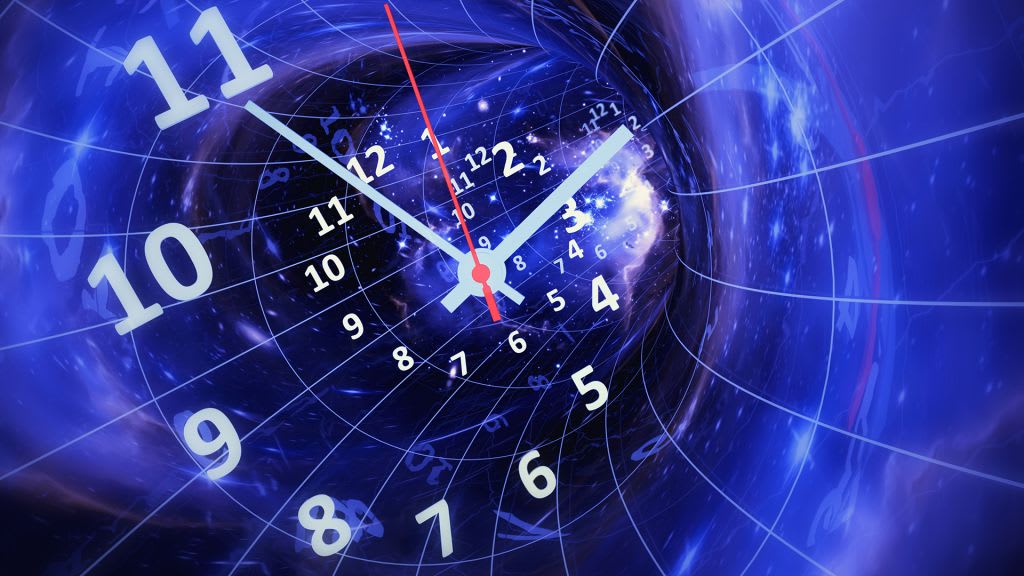The mind-bending physics of time
Unraveling the Mysteries of Time: Concepts, Theories, and Implications

Lexicographers often point out that the word "time" is the most frequently used noun in the English language. We constantly discuss time throughout the day, reflecting on how we utilize it in our conversations. When we make plans for a specific time, such as "Meet me at 7 p.m.," it is understood without confusion. Time serves as a label for various events in the Universe, distinguishing one moment from another. The real complexity arises when we delve into the properties of time, such as the past, present, and future. Questions about the nature of time, its direction, and the asymmetry between past and future remain unanswered. Despite these uncertainties, the essence of time itself is not a mystery. It truly takes a certain level of mental discipline to acknowledge that time could potentially exist without a specific direction. In terms of space, there is no inherent arrow, yet space itself still exists. In our three-dimensional world, there is no intrinsic direction at the fundamental level of physics. To illustrate this, imagine yourself as an astronaut floating in space - no matter which way you look, there is no preferred direction. Despite this lack of a specific direction, space continues to exist. Similarly, time would persist even without a defined arrow. However, here on Earth, we do observe a clear arrow of space. For instance, when we drop a coffee cup, it always falls down, indicating a distinction between up and down. This is not a fundamental aspect of the Universe, but rather a result of our proximity to a significant object like the Earth. The arrow of time operates in a similar manner. In our daily experiences, we perceive time as flowing in a particular direction due to the influential event of the Big Bang. This leads us to the concept of 'entropy.' Entropy measures the disorder or randomness of a system - low entropy signifies orderliness, while high entropy indicates chaos. The Universe naturally tends to move from low entropy to high entropy, as described by the second law of thermodynamics. The key question then becomes: why was the world initially in a state of low entropy? Why was yesterday's world less disordered than today's? To be honest, the explanation provided is not entirely satisfactory. The reason for the Universe being even lower in entropy the day before yesterday is because it was even lower in entropy the day before that. This chain of reasoning can be traced back 14 billion years to the Big Bang, which marked the origin of our observable universe. At that time, the Universe existed in a hot and dense state, characterized by a very low-entropy state. Since then, the Universe has been steadily increasing in entropy. This concept is referred to as the 'Past hypothesis' by philosophers, with David Albert being the one who coined this term. Now, if we consider that the world is composed of atoms and understand what entropy signifies in terms of rearranging these atoms, along with the knowledge of the past hypothesis stating that the entropy of the universe started at a very low level, we can explain everything that has occurred thereafter. There is a misconception when it comes to discussing human life and entropy. Some believe that life, in its biological form, is a constant battle against the increase in entropy. However, I disagree with this notion. I believe that life owes its existence to the fact that entropy is increasing. If entropy were not increasing, it would simply that nothing is happening and nothing interesting is taking place. Without the increase in entropy, there would be no memory of the past and no causal effect that we can have on the future. The Universe would simply be in a state of 'thermal equilibrium', where everything is the same everywhere. This would result in a maximally boring universe. The scientific question we have is: Why do complex structures emerge in the first place? It is evident that they require increasing entropy to exist, as if entropy was already at its maximum, complexity would not be possible. However, this does not imply that they must necessarily come into existence. Consider a well-known example: perfume in a small bottle. When the bottle is closed, the perfume is simple. When it is opened and spreads throughout the room, the entropy of the perfume increases, yet it remains simple. The transition from a simple, low-entropy state to a simple, high-entropy state creates a vast array of possibilities for intricate structures to form. Just like the perfume, our Universe began as simple and low entropy. In the future, stars will die, black holes will evaporate, leaving a dark, empty, yet simple and high-entropy state. It is during the transition between these states that complex systems like us - which thrive on the increasing entropy of the Universe - can and do emerge. We lack complete knowledge of the entire narrative. In my opinion, it is an immensely enjoyable and dynamic field of scientific research. The questions it poses are intriguing: Why did intricate formations such as living organisms emerge, and why did they take the exact form they did? What is the significance of information? What are the tangible chemical processes occurring on Earth? What geological phenomena are at play? Could similar events occur on other planets? These inquiries are captivating, but one certainty is that if entropy did not increase throughout the process, none of these phenomena would have occurred.
About the Creator
Lillian Formelová
Learning how things works is one of my favorite hobby and i decided to share my knowledge with you,so i hope you learn something new!!:3
Enjoyed the story? Support the Creator.
Subscribe for free to receive all their stories in your feed. You could also pledge your support or give them a one-off tip, letting them know you appreciate their work.





Comments
There are no comments for this story
Be the first to respond and start the conversation.